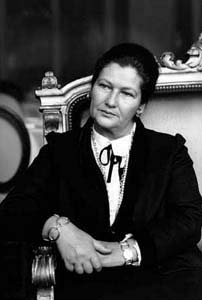Autism in France
Autism in France refers to the understanding, diagnosis, and treatment of autism spectrum disorder (ASD) within the French healthcare and educational systems. The approach to autism in France has evolved significantly over the years, influenced by cultural, medical, and political factors.
History[edit | edit source]
The history of autism in France can be traced back to the late 18th century with the case of Victor of Aveyron, a feral child who was studied by the physician Jean Marc Gaspard Itard. Although Victor's condition was not identified as autism at the time, his case laid the groundwork for future studies on developmental disorders.
In the 20th century, French psychiatrist Gilbert Lelord made significant contributions to the understanding of autism. Lelord's research in the 1970s and 1980s focused on the neurobiological aspects of autism, helping to shift the perception of autism from a purely psychological disorder to one with biological underpinnings.
Current Approaches[edit | edit source]
The French approach to autism has traditionally been influenced by psychoanalytic theories, which have been criticized for their lack of scientific basis. However, recent years have seen a shift towards evidence-based practices, including behavioral therapies such as Applied Behavior Analysis (ABA).
In 2018, the French government launched a national strategy for autism, aiming to improve early diagnosis, support for families, and inclusion in schools. This strategy marked a significant shift towards integrating autistic individuals into society and providing them with the necessary support.
Healthcare and Education[edit | edit source]
The French healthcare system provides various services for individuals with autism, including specialized centers and support networks. However, access to these services can be uneven, with disparities between urban and rural areas.
In education, the inclusion of autistic children in mainstream schools has been a topic of debate. While some progress has been made, challenges remain in providing adequate support and resources for autistic students.
Notable Figures[edit | edit source]
Several notable figures have influenced the discourse on autism in France. Simone Veil, a former Minister of Health, played a crucial role in healthcare reforms that impacted the treatment of autism. Her efforts in the 1970s and 1980s laid the groundwork for more inclusive healthcare policies.
Jean-Claude Ameisen, a physician and bioethicist, has been an advocate for autism awareness and research. His work has emphasized the importance of understanding autism as a spectrum and the need for personalized approaches to treatment.
Related Pages[edit | edit source]
Search WikiMD
Ad.Tired of being Overweight? Try W8MD's physician weight loss program.
Semaglutide (Ozempic / Wegovy and Tirzepatide (Mounjaro / Zepbound) available.
Advertise on WikiMD
|
WikiMD's Wellness Encyclopedia |
| Let Food Be Thy Medicine Medicine Thy Food - Hippocrates |
Translate this page: - East Asian
中文,
日本,
한국어,
South Asian
हिन्दी,
தமிழ்,
తెలుగు,
Urdu,
ಕನ್ನಡ,
Southeast Asian
Indonesian,
Vietnamese,
Thai,
မြန်မာဘာသာ,
বাংলা
European
español,
Deutsch,
français,
Greek,
português do Brasil,
polski,
română,
русский,
Nederlands,
norsk,
svenska,
suomi,
Italian
Middle Eastern & African
عربى,
Turkish,
Persian,
Hebrew,
Afrikaans,
isiZulu,
Kiswahili,
Other
Bulgarian,
Hungarian,
Czech,
Swedish,
മലയാളം,
मराठी,
ਪੰਜਾਬੀ,
ગુજરાતી,
Portuguese,
Ukrainian
Medical Disclaimer: WikiMD is not a substitute for professional medical advice. The information on WikiMD is provided as an information resource only, may be incorrect, outdated or misleading, and is not to be used or relied on for any diagnostic or treatment purposes. Please consult your health care provider before making any healthcare decisions or for guidance about a specific medical condition. WikiMD expressly disclaims responsibility, and shall have no liability, for any damages, loss, injury, or liability whatsoever suffered as a result of your reliance on the information contained in this site. By visiting this site you agree to the foregoing terms and conditions, which may from time to time be changed or supplemented by WikiMD. If you do not agree to the foregoing terms and conditions, you should not enter or use this site. See full disclaimer.
Credits:Most images are courtesy of Wikimedia commons, and templates, categories Wikipedia, licensed under CC BY SA or similar.
Contributors: Prab R. Tumpati, MD





